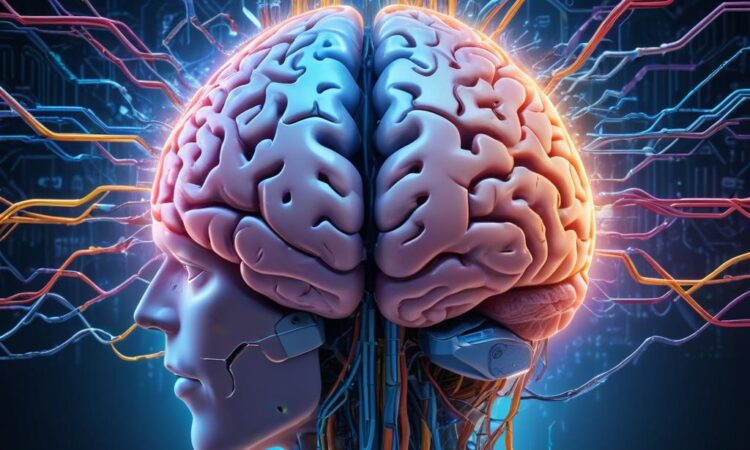Advances in Artificial Intelligence and Ethical Concerns
The rapid advancement of artificial intelligence (AI) is transforming numerous aspects of our lives, from healthcare and finance to transportation and entertainment. This progress, however, is not without its ethical challenges. The increasing sophistication of AI systems raises serious concerns about algorithmic bias, job displacement, and the potential for misuse of these powerful technologies. This article delves into these critical issues, exploring expert opinions and proposing policy recommendations to navigate the complex ethical landscape of AI.
Bias in Algorithms: A Systemic Problem
One of the most pressing ethical concerns surrounding AI is the prevalence of bias in algorithms. AI systems are trained on vast datasets, and if these datasets reflect existing societal biases, the resulting algorithms will perpetuate and even amplify these biases. This can lead to discriminatory outcomes in areas such as loan applications, criminal justice, and hiring processes. For instance, facial recognition systems have been shown to exhibit higher error rates for individuals with darker skin tones, leading to potential misidentification and wrongful accusations.
Dr. Emily Carter, a leading AI ethicist at Stanford University, notes, “The problem isn’t simply that algorithms are biased; it’s that the biases are often invisible and deeply embedded within the data. Addressing this requires a multi-faceted approach, including careful data curation, algorithmic auditing, and the development of more equitable data collection methods.” Her research emphasizes the need for diverse and representative datasets to mitigate bias and ensure fairness in AI systems.
The consequences of biased algorithms can be far-reaching and devastating. Individuals from marginalized communities may experience disproportionate harm, reinforcing existing inequalities and hindering social progress. Addressing this requires not only technical solutions but also a broader societal conversation about fairness, equity, and accountability in the development and deployment of AI.
Job Displacement: The Shifting Landscape of Work
The automation potential of AI is another significant ethical concern. As AI systems become increasingly capable of performing tasks previously carried out by humans, there is a growing fear of widespread job displacement. This is particularly true in sectors such as manufacturing, transportation, and customer service, where repetitive or easily automatable tasks are prevalent.
Professor David Miller, an economist specializing in the impact of technology on employment, argues that “while AI will undoubtedly lead to job losses in certain sectors, it will also create new job opportunities in areas such as AI development, data science, and AI ethics. However, the transition will require significant investment in retraining and upskilling programs to ensure a smooth and equitable shift in the workforce.” His research highlights the importance of proactive measures to mitigate the negative impacts of automation and prepare the workforce for the future of work.
The potential for job displacement raises crucial questions about social safety nets, income redistribution, and the need for government intervention to support workers affected by automation. Policies aimed at providing retraining opportunities, universal basic income, or other forms of social support may be necessary to address the potential economic and social disruption caused by AI-driven job displacement.
The Potential for Misuse: Malicious Applications of AI
The power of AI technology also presents the potential for misuse, with implications for national security, privacy, and human rights. AI systems can be used to create sophisticated deepfakes, spread misinformation, develop autonomous weapons systems, and conduct mass surveillance. These applications raise serious ethical and societal concerns.
Dr. Anya Sharma, a cybersecurity expert at the University of Oxford, warns, “The lack of regulation and oversight in the AI field creates a fertile ground for malicious actors to exploit the technology for nefarious purposes. The development of autonomous weapons systems, for instance, raises profound ethical questions about accountability and the potential for unintended consequences.” Her work emphasizes the need for international cooperation and robust regulatory frameworks to prevent the misuse of AI and mitigate potential risks.
Addressing the potential for misuse requires a multi-pronged approach, including international cooperation on AI governance, the development of ethical guidelines for AI research and development, and the implementation of robust cybersecurity measures to protect against malicious attacks. Transparency and accountability in the development and deployment of AI systems are also crucial to prevent misuse and build public trust.
Policy Recommendations: Navigating the Ethical Landscape
To address the ethical challenges posed by AI, a combination of technical, policy, and societal solutions is necessary. This includes:
- Investing in AI ethics research: Further research is needed to understand the societal impacts of AI and develop effective strategies to mitigate risks.
- Developing ethical guidelines and regulations: Clear guidelines and regulations are needed to govern the development and deployment of AI systems, ensuring fairness, transparency, and accountability.
- Promoting diversity and inclusion in AI development: Diverse teams are crucial to address bias and ensure that AI systems benefit all members of society.
- Investing in education and retraining programs: Programs to reskill and upskill workers are essential to mitigate the impact of job displacement caused by AI.
- Strengthening international cooperation: Global collaboration is needed to address the challenges of AI governance and prevent the misuse of AI technologies.
- Promoting public awareness and engagement: Open discussions about the ethical implications of AI are crucial to inform public policy and foster responsible innovation.
The rapid advancement of AI presents both incredible opportunities and significant challenges. By proactively addressing the ethical concerns surrounding AI, we can harness its potential for good while mitigating its potential risks. This requires a concerted effort from researchers, policymakers, industry leaders, and the public to ensure that AI is developed and used responsibly, ethically, and for the benefit of all humanity.
The future of AI depends on our ability to navigate these complex ethical considerations. The path forward requires thoughtful deliberation, robust regulation, and a commitment to ensuring that AI serves humanity, not the other way around.
This discussion only scratches the surface of the multifaceted ethical challenges presented by AI. Continuous dialogue, research, and collaboration are vital to ensure a future where AI benefits all members of society equitably and responsibly.

